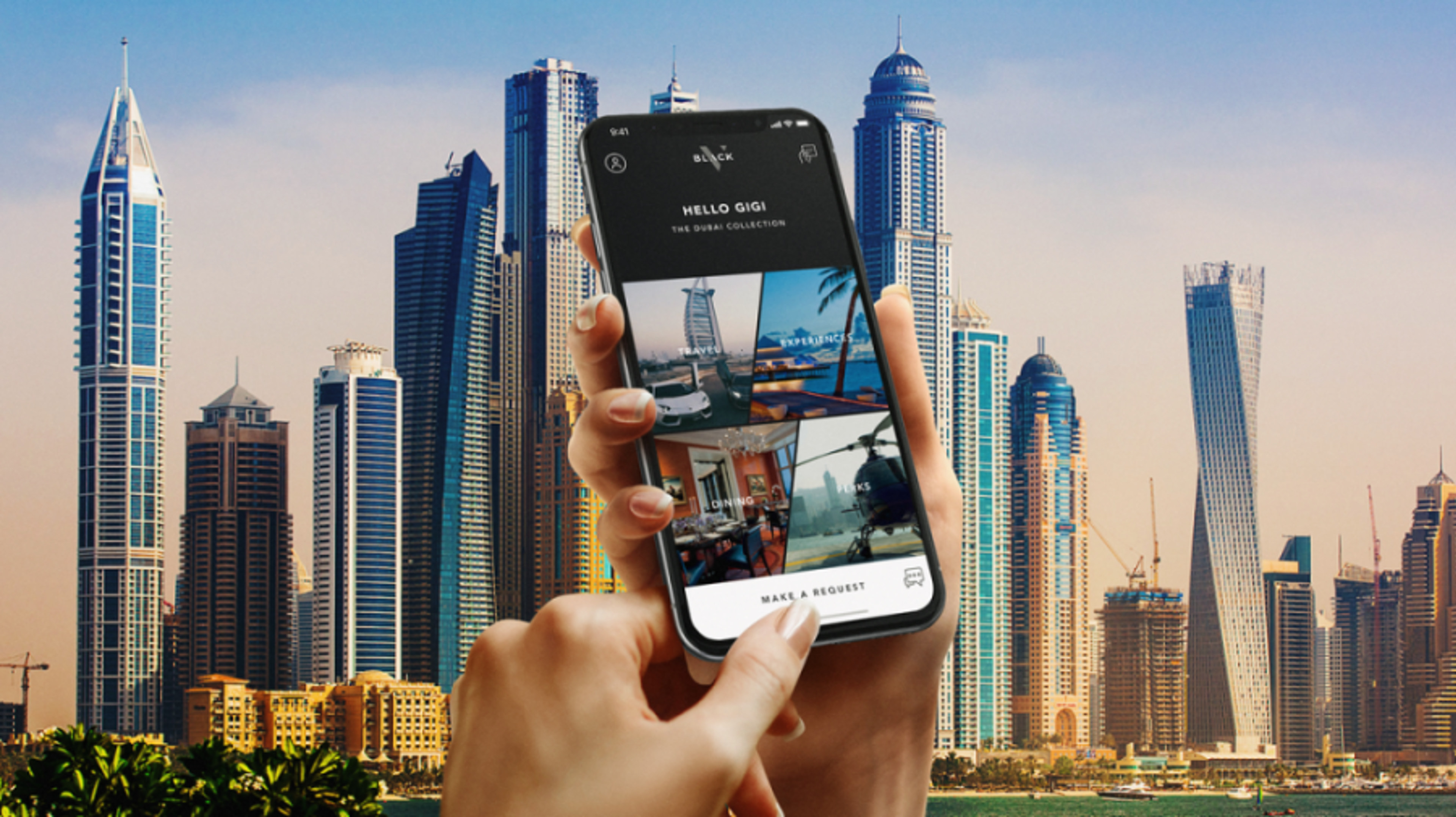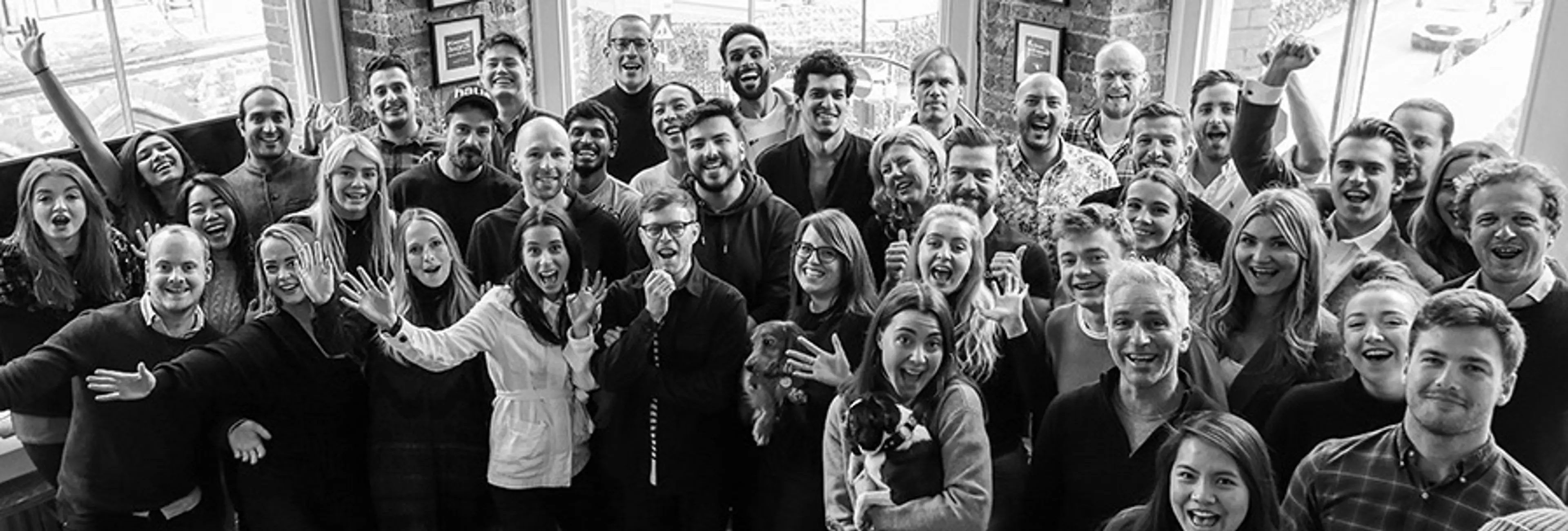
Hospitality & Travel
1 Apr 2019
5 Min Read
A Conversation With Velocity Black’s Zia Yusuf
Velocity Black is shifting the realms of possibility for the luxury experience economy.
The self-professed “ultimate members club” delivers bespoke experiences one could usually only dream of: swim with Norweigan Orcas; fly to space; access to the Oscars after party; all at the touch of a button. The app promises a human response within one minute: 24 hours a day, seven days a week.
A powerful recommendation and transaction machine works in tandem with highly trained staff to deliver 24/7/365 service and empower members with a ‘life full of moments that matter’. The aim? To seamlessly intertwine bold tech and human interaction, enhancing the power of both.
And the hype is definitely real. The Velocity Black Desert Beach Club at this year’s Coachella was dubbed the most ‘exclusive, talked about’ event of the festival, and the startup has seen significant investment.
Velocity Black’s co-founder and CEO, Zia Yusuf, was on a high-flying career path with Goldman Sachs before ditching the world of finance to launch the concierge app in 2014 with his business partner, Alex MacDonald.

Symptomatic of the quick growth of the experiential economy, the decision proved lucrative: it was the fastest-growing UK company by revenue in 2018.
“Our revenue grew by 848% but our headcount was flat. That’s the power of our platform.”
With a membership of combined net worth over a third of a trillion dollars and an app live in over 60 cities across the globe, Velocity Black has become a true master of 21st-century luxury lifestyle. We were honoured to sit down with Zia Yusuf to talk through his highs and lows, his ultimate inspirations and distaste for ‘FOMO’.
Talk us through your decision to leave Goldman Sachs?
Jeff Bezos was asked a similar sort of question when he left a hedge fund to start Amazon: what made him do it? He used a really interesting term, ‘regret minimisation framework’. That was pretty much my exact thought process too. If you’re ever faced with a difficult or important decision, you think carefully about which of those decisions you are least likely to regret. People almost always regret the things they didn’t do.
Whilst I thoroughly enjoyed my career in finance – it gave me a great understanding of how good businesses work – I’ve always wanted to start my own company. I don’t have the patience to work in a large organisation where you need buy-ins from lots of different people. The rate of change across the world including consumer behaviour is accelerating and the rate of change in big companies is decelerating.
Where did the inspiration for Velocity Black come from?
A big part of it was wanting to build products that we’d use ourselves. My father is a doctor for the NHS and my mother a nurse. One of the joys of a job in finance is having some disposable income and being able to take them on trips, the kind we couldn’t necessarily do growing up. Four years into my career and I still hadn’t taken them away: not because I didn't have the money, but because the companies that did safaris were open 9-5 and you can’t use your mobile on the trading floor. If you do call them, inevitably the person you need to speak to is busy. I also found I wasn’t doing weekends away in Europe even though it was right on my doorstep.
It was because these things take planning: you don't just want to go to a city and just stay in a hotel and come back. It gets to Thursday, you’re exhausted, and by Friday you’re dreaming of takeaway food. The more society grows ‘richer’, the more we grow poorer, in a way.
There was no centralised recommendation engine using machine learning (like Netflix, Amazon Prime, UberEats) for the customer who has more capital than time, but also wants inspiration.
So these were big questions for us: how can we create something that's compelling? That’ll give people more moments that actually matter to them? That they’ll get emotionally charged when they think about?
‘These were big questions for us: how can we create something that's compelling? That’ll give people more moments that actually matter to them? That they’ll get emotionally charged when they think about?”
How has Velocity Black capitalised on the growth of the experiential economy?
We definitely see this in our business, but I've never seen ourselves as looking to capitalise on a trend.
When was the last time you really looked forward to something? This is what we are trying to fix at Velocity Black. For example, one of the experiences we offer is to design and create a pair of Christian Louboutin shoes with the Head of Design in Paris.
“One of the experiences we offer is to design and create a pair of Christian Louboutin shoes with the Head of Design in Paris.”
You look forward to it because it’s showcasing the expertise and craftsmanship which is so core to that brand... then the experience becomes part of you. It’s a natural focus on our customers. We see it as our obligation to innovate on behalf of our members.
It’s really interesting that we see the growth of the experience economy among millennials, all the while the average millennial checks their phone 280 times a day. You go to a concert these days and all people are doing is filming. There’s a real juxtaposition.

But I don’t think we’ve changed much as a species. In half a million years, we’ll still be seeking that connection with other people. Burning Man certainly isn't going anywhere, because it's taking people into a shared experience. That’s what it really is.... the desire for connection – actual connection – with other people, which we’re kind of deprived of.
What sets you apart is the fact that people can book these experiences at the touch of a button. How has Velocity Black managed to balance technology with the actual customer?
We’re entirely focused on the customer. We’re not focused on automation for its own sake. We guarantee a response within a minute, all day, all night, every day of the year.
“We guarantee a response within a minute, all day, all night, every day of the year.”
Whether it’s Christmas or Yom Kippur. All our people are ready to speak to you. People who truly understand our type of customer and can build a real rapport with.
They also have instant access to our platform, an app with a brain that understands you as an individual. You don’t have to answer multiple questions.
If you book flights, we automatically check you in. We know what seat you prefer. We look to automate the things that are just much better when they're automated.
But if you were doing a safari with your mum, you would want to be asked questions like, “how mobile is she?”.
The notion that more choice is always better is simply not true - we call it the ‘tyranny of choice’. I think what our customers want, more than ever, is less choice but more confidence in the choices that they're making. We are using technology to hone our personalisation engines, but it’s a human being that’s making conversation happen.
“We are using technology to hone our personalisation engines, but it’s a human being that’s making conversation happen.”
Velocity Black sees amazing year-on-year success. What do you attribute this success to?
Our number one source of new members and new customers is direct referrals from our existing ones. Annual spend by members has grown fivefold over the last 12 months. Essentially, people are trusting us with more and more: instead of just a weekend away, we might be entrusted with their honeymoon, for example.
What’s next for Velocity Black?
We want to continue investing and reinvesting in the customer experience to make it even better and more personalised. We hear from our customers that we should move into wellness and health: a sector with an abundance of choice and potentially lots of misinformation.
People also said they’d appreciate our expertise in the world of art, especially if they’re new to the industry and want to invest. I guess we see ourselves as trusted advisors.
Successful startups can end up losing focus of what created that growth in the first place. We want our millionth customers to be the happiest people of all time.
“We see ourselves as scouring this planet for goods and services that are worthy of people’s time and money.”
[embed]https://www.youtube.com/watch?v=9eZyQFCHtqI[/embed]
How do you hire people to achieve this goal?
Last year we received over 7.5k inbound job applications. We hired 12 people. It's really about people who are smart, able to make good, proactive decisions and have the courage to advise clients in the best possible way. But also people who have had interesting lives, people who have travelled.
Then there's cultural fit. We like hiring people who are constantly looking to find a better way of doing things. All of our team share mine and Alex’s underlying belief that we have an unbelievably short time on this planet. I guess others call it FOMO now, but I hate that term. It’s not a race with other people, but more about how I can get the most out of the life that I have. Those are really the core business competencies and are embodied in my team who go above and beyond.
I also think there's a real value in founder-led companies. I think four of the five most valuable companies on the planet are still founder-led. You’d never ask your team to do something you wouldn’t do yourself. It instils a real sense of authenticity, whether they agree with the decision you made or not.
Would you ever venture into a physical space?
I wouldn’t rule anything out. One of the things I loved about Steve Jobs was that he went heavy in retail when everyone was backing out. Now, it’s the most efficient retail space on the planet in terms of dollars turned over per square foot. They’ve also created a mecca to the brand. A community within the store.
But I love the fact that we're a technology company which makes us capital light. We don't have to worry about big leases that become challenging when economies change. We have great relationships with people who do have physical spaces. For example, hosting events for customers to meet each other. But there's something quite nice about a new space each time. It’s the sense that this moment might not happen again.
What are the biggest challenges?
Making sure that happiness equals reality minus expectations. As we’ve grown and delivered, expectations continue to rise. I'm proud of the fact that we’ve started in a good place and continued to improve on it – but that’s not easy from a creative or staffing standpoint. And our customers are the most demanding people on the planet. That’s probably the second challenge.
“Our customers are the most demanding people on the planet.”
Thirdly, we deliver to members in 60 countries around the world. So it's really about making sure that as we grow in regions, that we are really cognisant and pay the appropriate level of attention to those incredibly important cultural differences and nuances.
Hospitality & Travel


